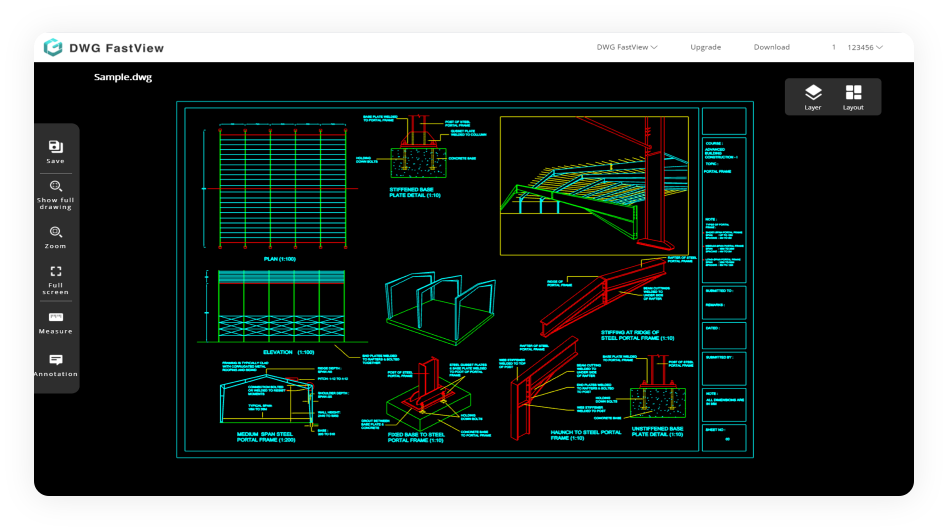User blogs
Tag Search
Tag search results for: "cad collaboration software"
The Art of 2D CAD Drawing: Precision and Creativity
Introduction
Computer-Aided Design (CAD) has revolutionized the way engineers, architects, and designers create technical drawings. In this article, we’ll explore the world of 2D CAD drawing, its applications, and the essential steps to create accurate and detailed designs.To get more news about online cad drawing 2d, you can visit gstarcad.net official website.
What Is 2D CAD Drawing? CAD stands for computer-aided design and drafting. It involves using specialized software to create precise technical drawings, schematics, and blueprints. Unlike 3D CAD, which adds depth and realism, 2D CAD focuses on two-dimensional representations.
 Applications of 2D CAD
Architectural Drawings: Architects use 2D CAD to design floor plans, elevations, and sections of buildings.
Applications of 2D CAD
Architectural Drawings: Architects use 2D CAD to design floor plans, elevations, and sections of buildings.
Mechanical Engineering: Engineers create detailed part drawings, assembly diagrams, and exploded views. Electrical and Electronics: Circuit diagrams, wiring layouts, and PCB designs are common in this field.
Civil Engineering: Road layouts, land surveys, and drainage plans are essential 2D CAD applications. Steps to Create a 2D CAD Drawing Choose a Template: Start by selecting a template that matches your project type (floor plan, circuit diagram, etc.). Measurements: If you’re working with an existing structure, take accurate measurements. For new designs, consider the location’s size and shape.
Drawing Lines and Walls: Create an outline using lines or walls. Walls represent the boundaries of rooms or structures. Add Symbols: Use specialized symbols (e.g., switches, valves, resistors) relevant to your design. These symbols enhance clarity.
Review and Share: Once your drawing is complete, export it as a PDF or other formats. You can also share it directly in collaboration tools like Microsoft Teams.
Conclusion 2D CAD drawing combines precision with creativity, enabling professionals to visualize and communicate complex ideas effectively. Whether you’re an architect, engineer, or hobbyist, mastering 2D CAD opens up a world of possibilities.
What Is 2D CAD Drawing? CAD stands for computer-aided design and drafting. It involves using specialized software to create precise technical drawings, schematics, and blueprints. Unlike 3D CAD, which adds depth and realism, 2D CAD focuses on two-dimensional representations.
 Applications of 2D CAD
Architectural Drawings: Architects use 2D CAD to design floor plans, elevations, and sections of buildings.
Applications of 2D CAD
Architectural Drawings: Architects use 2D CAD to design floor plans, elevations, and sections of buildings.Mechanical Engineering: Engineers create detailed part drawings, assembly diagrams, and exploded views. Electrical and Electronics: Circuit diagrams, wiring layouts, and PCB designs are common in this field.
Civil Engineering: Road layouts, land surveys, and drainage plans are essential 2D CAD applications. Steps to Create a 2D CAD Drawing Choose a Template: Start by selecting a template that matches your project type (floor plan, circuit diagram, etc.). Measurements: If you’re working with an existing structure, take accurate measurements. For new designs, consider the location’s size and shape.
Drawing Lines and Walls: Create an outline using lines or walls. Walls represent the boundaries of rooms or structures. Add Symbols: Use specialized symbols (e.g., switches, valves, resistors) relevant to your design. These symbols enhance clarity.
Review and Share: Once your drawing is complete, export it as a PDF or other formats. You can also share it directly in collaboration tools like Microsoft Teams.
Conclusion 2D CAD drawing combines precision with creativity, enabling professionals to visualize and communicate complex ideas effectively. Whether you’re an architect, engineer, or hobbyist, mastering 2D CAD opens up a world of possibilities.